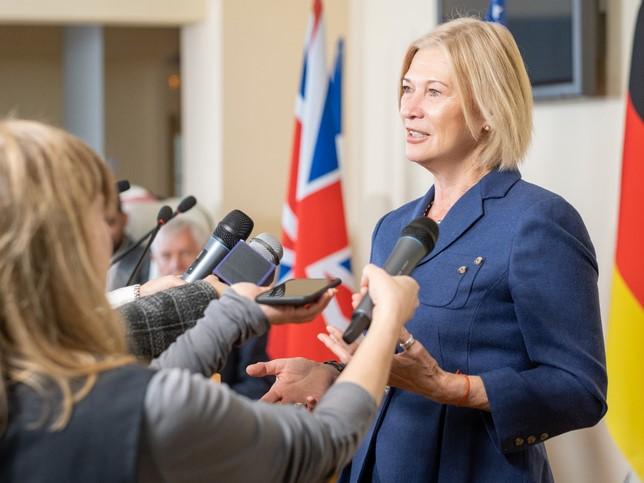
Show your research impact: a guide for academics and researchers

You may also like
Research impact extends beyond citations and academic recognition. It encompasses how broader contributions of high-quality research affect society, the economy and the environment. This includes bringing tangible, evidenced benefits that influence public policy, contribute to cultural understanding, improve social welfare and drive economic growth.
Here are strategies that researchers can use to amplify the impact of their work:
Communicate clearly
Researchers must be able to articulate the significance of their research to non-specialist audiences. This involves translating complex ideas into accessible language and highlighting the relevance of your findings to real-world issues. Use simple language, avoid technical jargon and focus on the difference that your discovery could make in everyday life.
Engage with stakeholders
Building relationships with industry, government and community organisations can facilitate the application of your research in practical settings. Engaging with these groups throughout your research process can also help tailor your work to meet societal needs.
- Tips for sharing research findings with diverse audiences
- Give your academic paper its best chance of being accepted
- The benefits of having a web presence as an early career researcher
For example, a research team that is developing a new public transportation system initially bases their ideas on technical expertise and data. Through continuous engagement with local government, community organisations and industry partners, they gain insights into urban-planning challenges, budget constraints, accessibility issues and advanced technologies. These interactions guide the team in refining their design to align with city infrastructure, financial viability and societal needs. The process ensures the final system is technologically sound and socially relevant.
Use digital platforms and technology
In the digital age, online platforms offer powerful tools for disseminating research. Academic social networks, blogs and even mainstream social media channels can amplify your research’s reach and impact.
Communications technology can also be used in the research itself to enhance its social impact. One example from Al-Mustaqbal University in Iraq is work that uses smartphone-based techniques for food safety analysis. This research involves developing portable nanoprobes for the onsite determination of food pollutants, using smartphones as diagnostic tools. The integration of carbon dot nanomaterials and bioreceptor abilities offers a low-cost, rapid and accessible solution for detecting agricultural and food contaminants. This approach represents a novel use of digital technology in research.
Consider how research can influence policy
Demonstrating how your research has informed or could inform policy decisions is a potent indicator of impact. This might involve presenting your findings to policymakers, contributing to public inquiries or participating in advisory panels.
Measure economic and social benefits
Quantifying the economic and social benefits of your research can be challenging but is highly persuasive. Researchers can collect data through surveys or interviews or by tracking metrics before and after implementation. Use clear, relatable case studies or testimonials to illustrate the impact. Regularly update and validate your data to ensure accuracy and relevance.
This might include cost-benefit analyses, case studies or testimonials from organisations that have applied your findings. For example, a study on improving renewable energy efficiency might showcase how a local community significantly reduced energy costs and carbon footprint, supported by testimonials from community leaders and data on economic savings and environmental impact.
Collaborate and form research partnerships
Collaborative research, often interdisciplinary, can address complex problems and thus have more impact. Partnerships with other institutions, industries or international bodies can also enhance the relevance and application of your research.
Collaborative research broadens the scope and depth of a study, incorporating diverse expertise and resources. Partnerships also increase the visibility and potential for dissemination of research findings, boosting the research’s influence and relevance.
Seek out opportunities for public engagement
Participating in public lectures, media interviews and community events can raise the profile of your research and demonstrate its societal relevance. This also includes writing for non-academic publications or contributing to public debates on issues related to your field.
What are the challenges and considerations of demonstrating research impact?
While striving to demonstrate impact, researchers face challenges such as the time and resources required to engage beyond academia, the difficulty in measuring certain types of impact and the pressure to balance impactful research with traditional academic outputs. Impact is not always immediate and can occur over a long period. Patience and persistence in communicating and applying your research findings are key.
In conclusion, demonstrating the impact of research is a multifaceted endeavour that requires strategic planning, effective communication and engagement with a broader audience. By embracing these strategies, researchers can not only enhance the visibility and application of their work, but also contribute significantly to societal advancement. As the academic landscape continues to evolve, those who successfully communicate the impact of their research will not only advance in their careers, but also drive meaningful change in the world.
Mohammed Al-Bahrani is a consultant in the scientific affairs division of Al-Mustaqbal University, Iraq.
If you would like advice and insight from academics and university staff delivered direct to your inbox each week, sign up for the Campus newsletter.


